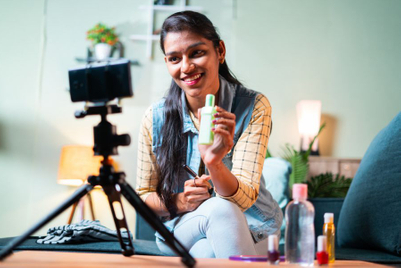
Research by Accenture Song has revealed that “the impact of influencer content is waning” because of the cost-of-living crisis.
The shop surveyed 2,000 UK consumers and found that almost a quarter (24%) of respondents aged 25 to 34 and a fifth (19%) aged 16 to 24 have unfollowed accounts they felt presented a lifestyle that was not relatable to them.
A fifth (21%) of people were less likely to be swayed by their content and recommendations, and 20% said they were more likely to skip ads from influencers.
In addition, one in five (16%) said they were less likely to watch influencer content during the cost-of-living crisis.
The research found that people care about a brand’s behaviour, with 32% saying they had stopped spending with a brand because it had done something they felt was “unfair, unethical or offensive”.
A third of those said it was because the company seemed out of touch with the higher cost of living.
A fifth (21%) said that they had a preference for social media channels that offered tips on how to save money, such as on food.
A fifth of people also said they favoured brand social accounts that gave financial tips, while the same proportion favoured content that suggested cheaper alternatives to popular products.
“De-influencer” content, which scrutinises brands and influencers, is becoming more popular, with 22% of respondents saying they had engaged with “de-influencer” content since the start of the cost-of-living crisis – including a third of 16-to 24-year-olds.
Two-thirds (64%) of this age group said they had decided not to spend with a brand as a “direct result of engaging with ‘de-influencer’ content”.
Accenture Song also spoke to 100 senior marketers as part of the research, with 65% saying they had spent more on influencer marketing over the past 12 months, with a fifth investing significantly more.
However, 39% of marketers said they favoured the shift to “authenticity and ‘real talk’”.
More than half (51%) of marketers expressed concerns about how “de-influencing” could affect their brand and 53% have altered campaign activity as a result.
Two-fifths (44%) of marketers said they thought “de-influencing” was a “good thing and gives all brands a fairer playing field”.
“We’ve all seen the shift from influencers to creators – from perfectly curated feeds and only showing life’s ‘best bits’, to storytellers and entertainers, sharing more of their lives,” Vix Jagger, executive creative director at Accenture Song, said.
“This year, however, has signalled an even bigger shift towards not just a warts-and-all approach but a willingness to call out polished content and unrealistic lifestyles, given the backdrop of trying times.
“It has prompted a much-needed reassessment of the social and influencer landscape and put values front and centre once again for brands.”


.jpg&h=334&w=500&q=100&v=20250320&c=1)


.png&h=334&w=500&q=100&v=20250320&c=1)

.jpg&h=334&w=500&q=100&v=20250320&c=1)
.png&h=334&w=500&q=100&v=20250320&c=1)
.png&h=334&w=500&q=100&v=20250320&c=1)

.png&h=334&w=500&q=100&v=20250320&c=1)
.jpg&h=268&w=401&q=100&v=20250320&c=1)



.png&h=268&w=401&q=100&v=20250320&c=1)
.jpg&h=268&w=401&q=100&v=20250320&c=1)
